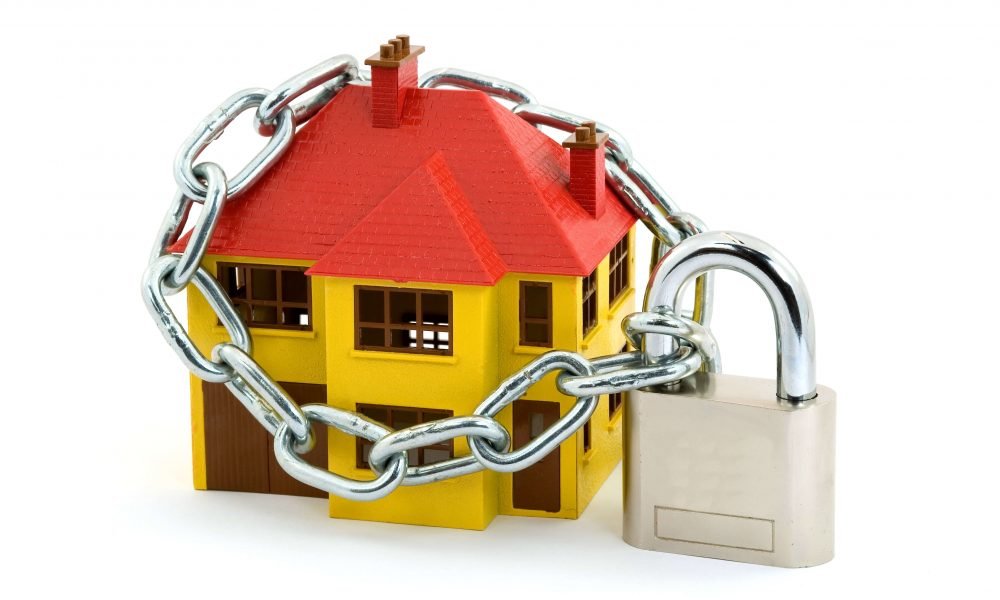
Why are So Many Americans Losing Their Homes?

The typical American dream is to have a nice home with all the creature comforts one could possibly need and, perhaps, a few luxuries. In America, the Land of the Free, ironically, nothing is free. Anything is possible, though, and you can get almost anything you could possibly want, as long as you can pay for it. If you can’t pay for it, you can, at least, find someone to lend you the money.
See, making money in America is a challenge that can bring out the Donald Trump in anyone. Borrowing money to buy real estate, on the other hand, is another story. It is a lot simpler, and it is fairly easy if you have enough collateral.
Banking on the future
 The most common collateral used to borrow money is the property that has the most value: the home. Pricing for homes have skyrocketed over the years, and since the arrangement in all house mortgages is that you can still live in the house even if it is mortgaged, it seems an amenable arrangement.
The most common collateral used to borrow money is the property that has the most value: the home. Pricing for homes have skyrocketed over the years, and since the arrangement in all house mortgages is that you can still live in the house even if it is mortgaged, it seems an amenable arrangement.
The Asian Development Bank has observed that Asian countries save too much and not spend enough. Conversely, Americans are likely to spend more than what they are currently earning and bank upon the possibility of “future” earnings—that is to say, spending it before earning it. So, backed by the strong belief of a bright future and the debt secured by the home, forward-looking Americans mortgaged their houses in droves. But if that future is in the hands of a leader who does not view the future in terms of economic development, what are the people borrowing against?
Bursting bubbles
The housing bubble—that is to say, the uncharacteristic increase in the valuation of real property, which, in the end, will become unsustainable—peaked around the year 2005. This means that it has been steadily forming years before it burst, and it was definitely not an overnight occurrence. A bit of attention any time before 2005 would have been prudent as it would have been easy enough to monitor the market price of houses and there would certainly have been measures that could have been taken, at the very least, to soften the impact.
The result? The most recent crash of the stock market and other contributing and related economic woes have made it difficult for many homeowners to earn the payments for the mortgages on their homes. This is further aggravated by the fact that these homes have devalued due to the bursting of the housing bubble. In a nutshell, this meant that a decrease in the valuation of real estate left some people consequently owing more than what their houses were worth.
The American dream begins to fade away as this darker reality sets in. The sad part is that when these things happen, there are no winners—not the homeowners that are losing their homes, nor the lenders that are going bankrupt because too many debts are left unpaid. The loss of the homeowner is not greater, but it is more personal. Home is where the heart is, after all. But to lenders it’s merely unrealized profits—even if, in truth, some of these foreclosures are due to their loose lending policies.
Failing to see the writings on the wall
 It’s not entirely the homeowner’s fault. True, there are those who have made bad investments that didn’t pay off, and there are others who threw it all away on useless luxury goods. But that is not the entire picture.
It’s not entirely the homeowner’s fault. True, there are those who have made bad investments that didn’t pay off, and there are others who threw it all away on useless luxury goods. But that is not the entire picture.
Simply put, the entire economy is in crisis—a crisis which could have been avoided had the country’s leadership chosen to concentrate on economics.
The existence of economic bubbles, lax lending policies, unsterilized foreign exchange reserves (where more money is printed to stabilize the foreign exchange rate without regard to its reserves; thus, increasing internal inflation and lowering the currency’s value), and the overproduction of goods due to globalization have long since been evident. All of these interrelated pre-existing conditions could have been curbed with a few austerity measures or regulatory initiatives.
Our elders say that “an ounce of prevention is worth a pound of cure.” In this case, it could have been worth tons of the cure that is nowhere in sight. A flurry of laws, aids, and stays can only stave off the torrent of foreclosures on real estate for so long and for so many.
More inReal Estate & Mortgage
-
Katy Perry’s Real Estate Journey: Legal Battles and Property Pitfalls
Katy Perry, the pop sensation known for her chart-topping hits, bold fashion choices, and stint on American Idol, has been making...
December 15, 2023 -
What To Do When Markets Are Volatile?
Market volatility refers to the frequency and magnitude of price movements in financial markets. It is like the weather of the...
December 7, 2023 -
The Cheapest Days to Book Flights and Travel
When it comes to snagging the best deals on flights and travel, timing can be everything. It is like finding that...
November 27, 2023 -
The 4 Optimal Times to Consider Rebalancing Your Portfolio
Navigating the investment world is like hopping on a roller coaster—ups, downs, twists, and turns galore. Whether you’re a hands-on trader...
November 26, 2023 -
Buying a House? Understand You Are Buying a Liability, NOT an Asset
In the grand tapestry of life goals, owning a house is often stitched in golden thread. It is the culmination of...
November 19, 2023 -
How to Tell If You Are Financially Prepared for Change
So, you are contemplating a big life change, huh? Maybe you are considering relocating to a new city, pursuing a new...
November 9, 2023 -
The Best Foods to Eat Before a Flight
Flying can be an exhilarating experience, but it can also be physically demanding. Long lines, security checks, and cramped seats can...
November 3, 2023 -
How to Spot a Bull Market Return: Signs to Look Out For
When it comes to Wall Street, or the investing world at large, investors and traders dream of catching the wave of...
October 26, 2023 -
Become a Millionaire Before Getting Retired | Fidelity’s Ultimate Retirement Advice
We have all daydreamed about it at one point or another: sitting on a pristine beach with the sun kissing our...
October 19, 2023















You must be logged in to post a comment Login